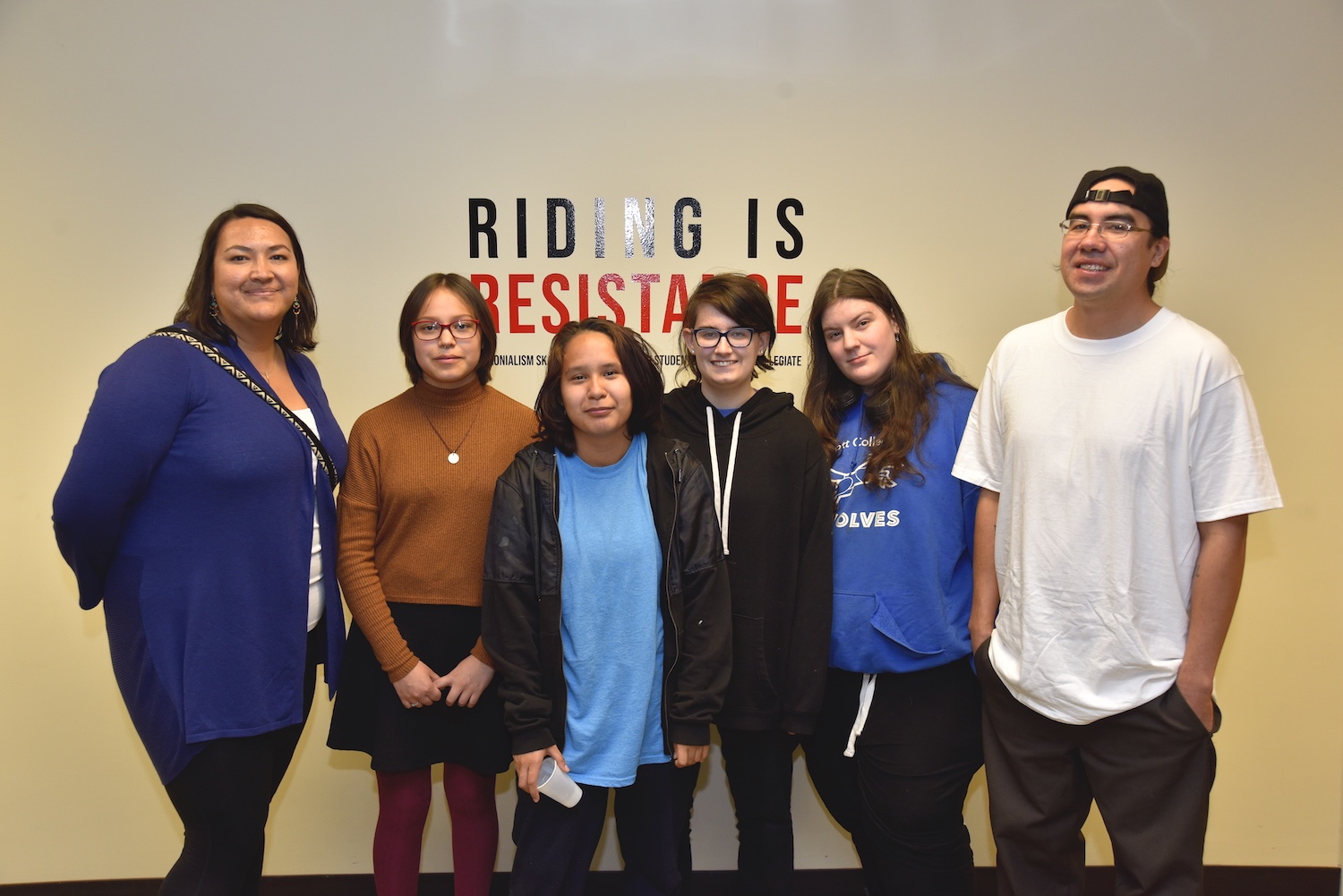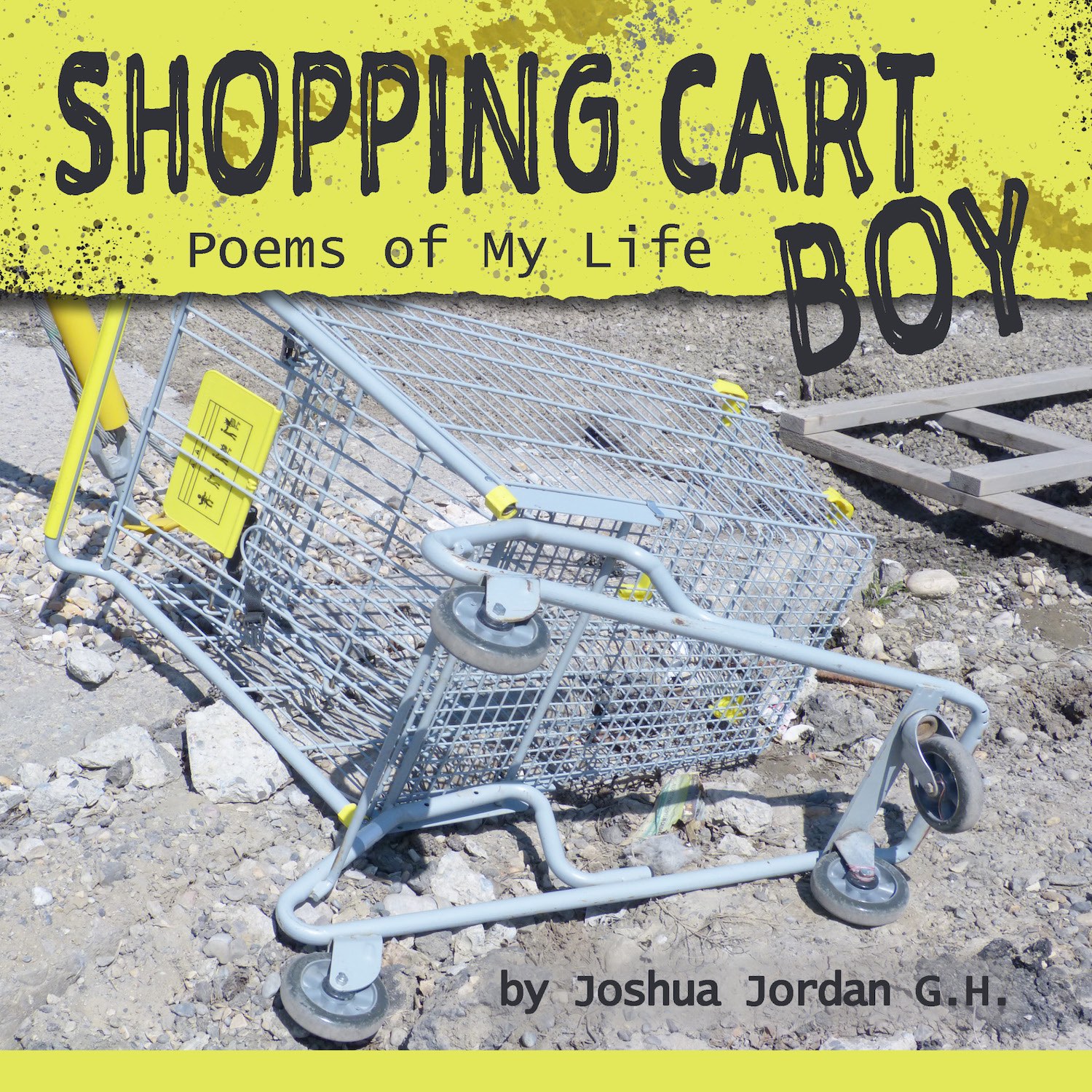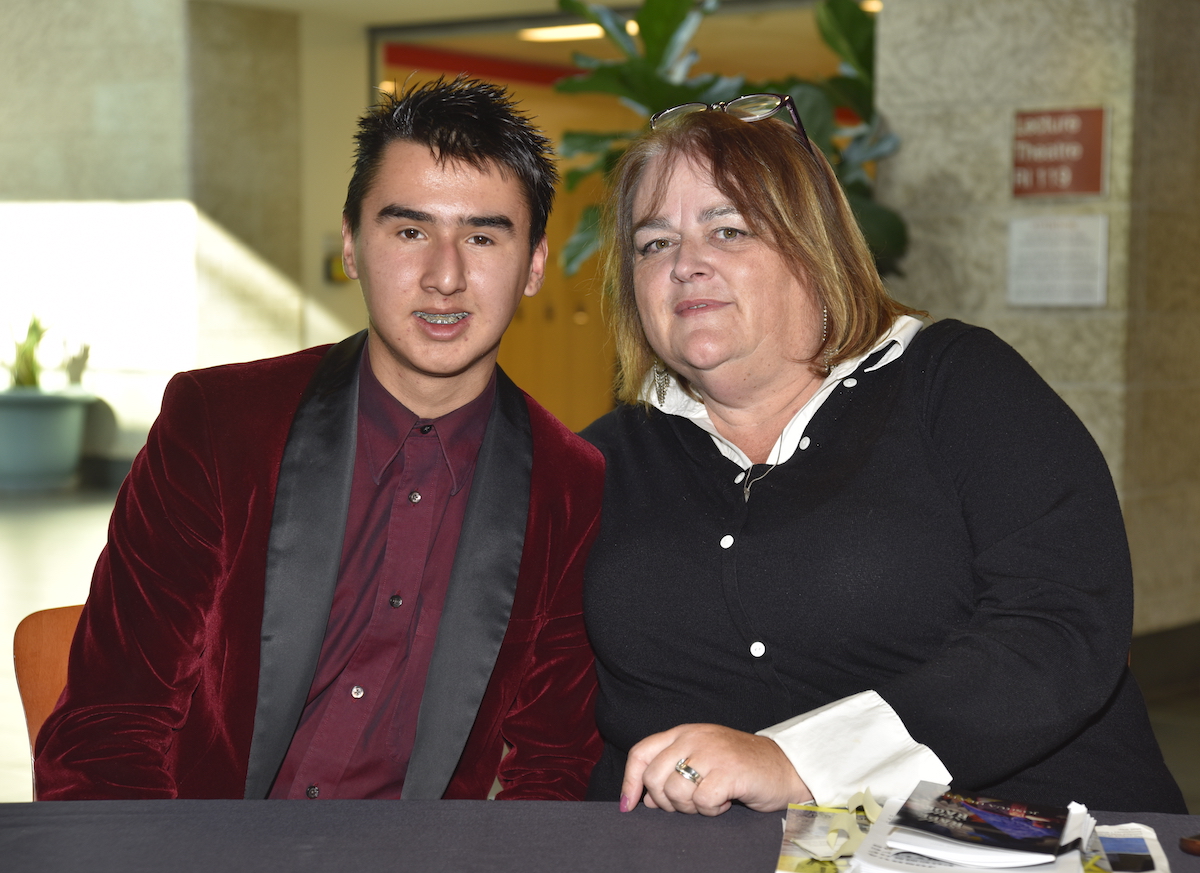Beginning in late March, Library staff Michael Shires and Jim Tait joined a Facebook Group called UR Campus Cousins. It’s for connecting Indigenous post-secondary students and their “cousins” throughout southern Saskatchewan and beyond. Michael and Jim had previously been providing library supports at the University of Regina ta-tawâw Student Centre and Indigenous students.
The Library has been closely monitoring regional and national initiatives regarding decolonizing subject headings in online library catalogs. A major goal of having more inclusive respectful Indigenous names in Quick Find is allowing library users to discover content that more accurately represents Indigenous communities. Archer Library will also work closely with First Nations University Library with subject heading changes in Quick Find.
During this reporting period, Archer undertook three specific events that expressed our ongoing commitment to indigenization and reconciliation.
In June 2019, the Archway Gallery was pleased to present Riding is Resistance: a Colonialism Skateboards project with students from Scott Collegiate, Treaty 4, in collaboration with Micheal Langan, the 2019 Michele Sereda Artist in residence. At the gallery opening we honoured the student artists for their work with special guest speaker President Vianne Timmons and a talk about the art by Micheal Langan. The exhibition consisted of skateboards which depict the history of Canada’s colonial past and its negative influence and was available for public viewing from June 2019 until March 2020.

In October 2019, Archer Library in partnership with the Aboriginal Student Centre (renamed the Ta-tawa Student Centre) and the Saskatchewan Library Association presented an author reading with Joshua Jordan G.H of Shopping Cart Boy: Poems of My Life. Joshua is a Cree Regina teenager. His poems describe his early life, including being in the care of Social Services and the death of his mother. We were pleased to have representatives from the provincial government, the University Executive Team and the Saskatchewan Library Association speak in recognition of Saskatchewan Library Week and to hear Joshua’s life story as expressed through his powerful and thought-provoking poems.


Saskatchewan Aboriginal Storytelling Month occurs every February. For Aboriginal people, storytelling is both a gift, and a very old custom, sanctioned by the people to teach, entertain and remember. Archer was pleased to present a storytelling event featuring Melissa Worme, a gifted performance artist from the Kawacatoose First Nation in Saskatchewan. She has achieved accreditations in theatre from the newly designated Gordon Tootoosis Nikaniwin Theatre Company and Nightwind Theatre. Melissa shared her life experiences as well as indigenous customs and ways of knowing.

In the summer of 2019 the Library and Archives hosted a student intern from the archival studies program at the University of Manitoba. The student worked with staff both at the University Library and Archives and the First Nations University Library. The student organized and catalogued recorded tapes from the Indian History Film Project that had been digitized by First Nations University with funding from the National Heritage Digitization Strategy. He also researched ownership and copyright issues that may or may not surround the recordings.
The original intent of the Indian History Film Project was to produce a television series portraying Canadian history from an Indigenous perspective. To this end interviews with elders and other Indigenous leaders were collected or recorded with individuals and from organizations across Canada and the United States. Over 200 interviews were amassed by the project in the 1980s as research for the television series. Sadly the series never came to fruition but the recordings were kept by the Canadian Plains Research Centre and later transferred to the First Nations University Library.
In the late 2000s synopsis and some transcripts of the interviews were added to the University of Regina institutional repository, oURspace. These became some of the most often used materials in the repository.
Both the Archer Library and the First Nations University Library are committed to the long-term preservation of the new digital copies and hopefully, in the near future, researchers discovering the Indian History Film Project in oURspace will also have access to the digitized audio files.